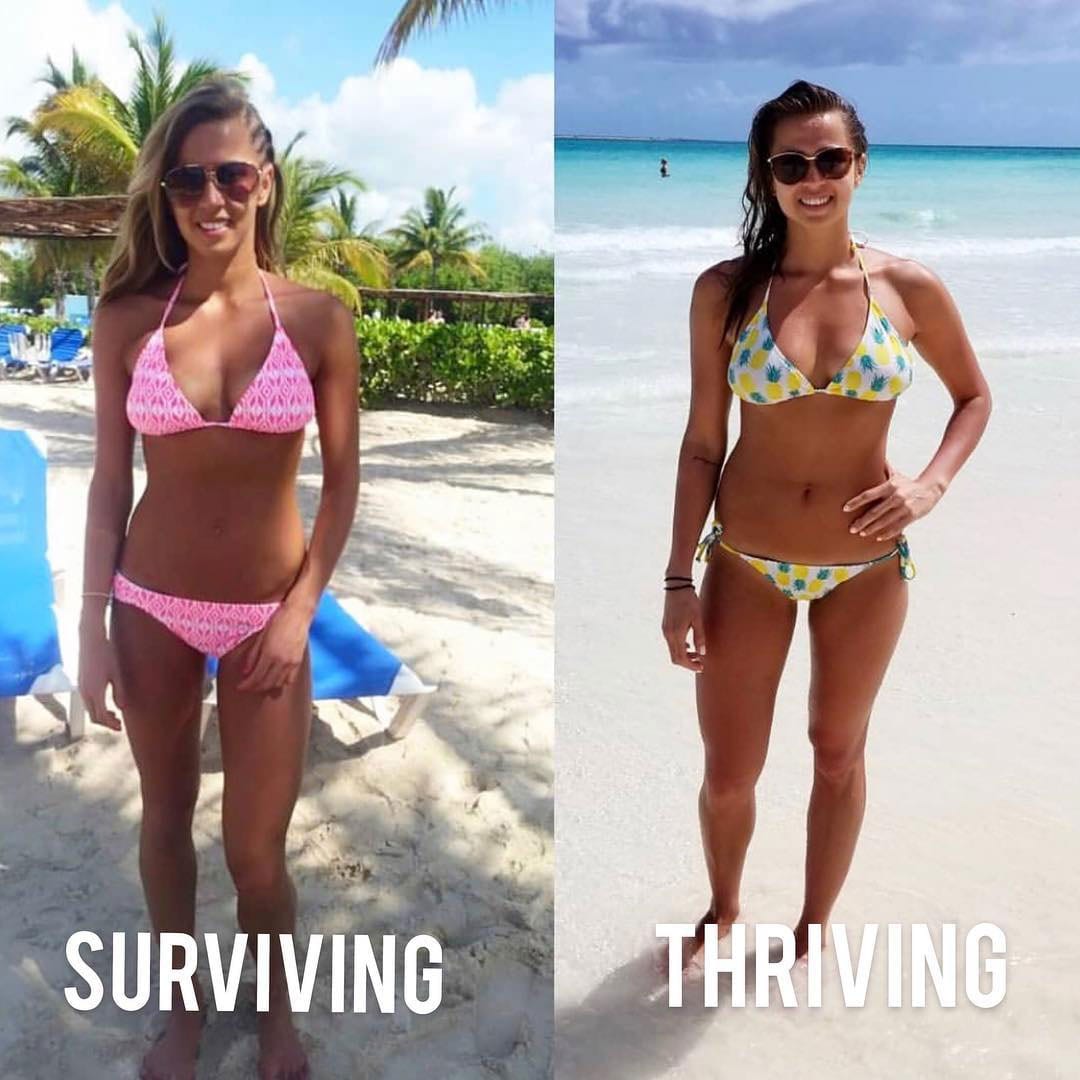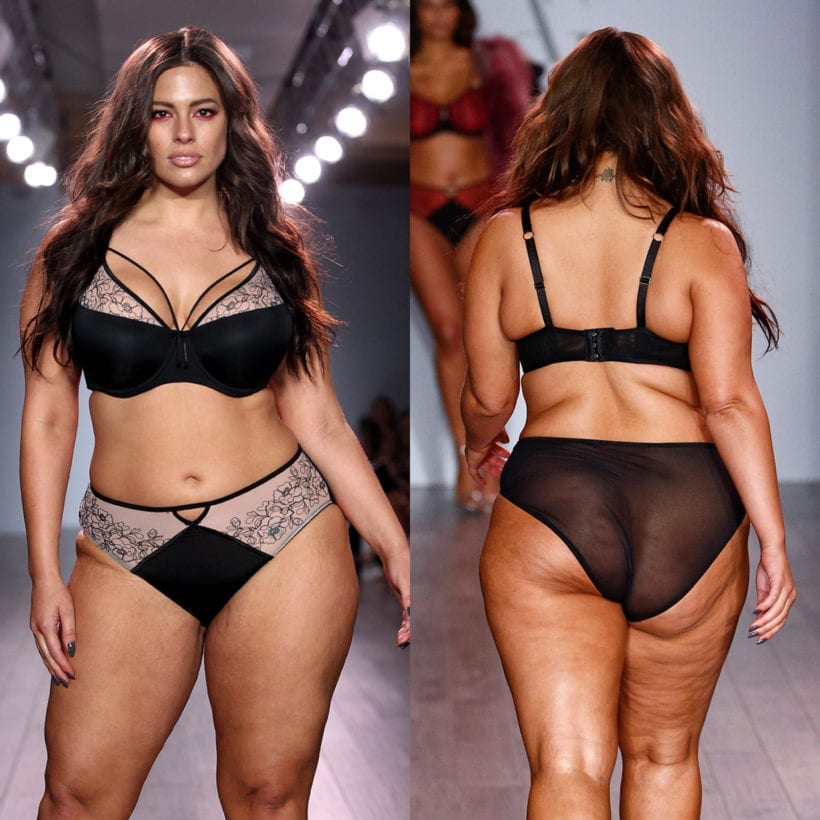More than 30 million people suffer from an eating disorder in the U.S. The most common forms are anorexia nervosa, bulimia nervosa and binge eating disorder. But our wellness-oriented culture created a different form of obsession: orthorexia nervosa, defined by dietary restriction and obsessions based on the healthfulness of foods, and spurred on by a fixation on body image and healthy living.
The term was coined in 1998, but it has increased so much that psychologists are considering it for inclusion as a separate eating disorder diagnosis in the next edition of Diagnostics and Statistical Manual of Mental Health. People with orthorexia become so fixated on “healthy eating” that they actually damage their wellbeing. Some common symptoms include compulsively checking ingredients lists, cutting out an increasing number of foods even when they don’t actually have any sensitivities to them (think about gluten), unusual interest in the healthiness of what others are eating, and more.
Here, Courtney Hill, 26, an intuitive eating counselor from Hamilton, Ontario, shares her own struggle with orthorexia:
People with orthorexia become so fixated on “healthy eating” that they actually damage their wellbeing.
How it Began
“Growing up, I was never conscious of what food I was eating or concerned about my body. I did come from a family that didn’t have a lot of money, and I also had three brothers, so a lot of the times when there was food available, I guess I would ‘get it while I could’ kind of thing. That’s really the only thing from my childhood that stands out to me.
Once I got into 7th or 8th grade, I started to hear different messages from the media and my friends, so my best friend and I started to want to lose weight, and I became very particular about wanting to lose my love handles and wanting to lose weight because I saw people I looked up to in the media or people at school making fun about things like love handles, or if you had fat in your arms. So my friend and I began to be a little more fixated on wanting to lose weight and we started to work out. We had no idea what to do or anything about nutrition, so we started to monitor what we ate, which just meant eating less and working out more. I was never too fixated on it, it was in the back of my mind.
And then I went through a really horrible breakup when I was 18. And at that point, I completely stopped eating for a period of time, a few months. I just looked so sick; I did not want to eat. I wanted to — I guess — regain control somehow, and that led me into a very extreme fitness journey. That’s where it really all began.
I started at a new fitness facility where they do boot camps and stuff, and that’s what I used to escape from the pain that I was dealing with. Through fitness, I then transformed my body and was praised by everyone around me for this transformation, and it got very extreme at that point. I was monitoring everything I ate to a T, and that’s where the orthorexia really began.
I would judge food based on their ingredients, and I was so focused on what every single ingredient was going to do to my body. I got to a point where it was only vegetables, chicken and egg whites and that was it. That’s all that was safe for me. And it was all prepared in containers. Everywhere I went I brought it with me.
When I started with fitness in the beginning, it was all about wanting to lose weight, how can I get thinner and thinner. But after 6 or 8 months, it became how can I look stronger, how can I looked jacked up and my abs are showing.
At the Height of It
This breaks my heart to this day, but I used to look at my family in disgust when they would eat certain things. My mom now tells me that when I was going through that, she would wait until I left to cook things because she knew that I was judging them. I would never eat anything she cooked, ever. I had to leave the room when they would eat certain things. I was thoroughly disgusted, and I wasn’t even the one that was eating. I felt like I was above them in a way because of the food I was eating. It got really, really restrictive.
I lost a lot of friends. It impacted my social life so much because I just felt like no one understood me. I couldn’t go anywhere because I couldn’t eat what I wanted to at the exact time that I had to eat it. I didn’t want to be around people that didn’t understand why I wanted to be healthy. I felt like no one understood that, “I just want to be healthy, why aren’t you guys healthy?” kind of thing.

I think these things are so easily masked by health. It’s disguised under a “health” umbrella. When I was in that state, a lot of people just looked at me and thought, “Wow, you’re very dedicated!” and “Wow, you’re so motivated!” “How do you do that?” “How do you stick to your meal plan?” So, I was praised so much for it, which fueled it even more.
I can remember that I would just stay in all the time. I would go to the gym, go to my job at the time — at the very beginning of it I was in nursing school, so I would go to school — and that was it. No outer, social events at all. I just became very, very isolated.
When it came to my fitness routine, I would be moving my body as much as I could. And when I say that, I am not joking. If I had a spare 10 minutes, I would be working out. I was very attached to the exact [number] of calories I would be eating and the food I would be eating. So, if I didn’t exercise, I would make sure I was even more strict on what I was eating. I would exercise 3-4 hours per day. I remember going to the gym that I would train at, and they had boot camp classes and I would do the same class two times in a row. Not even two different classes, but just the same, intense class two times in a row. I would bike there for half an hour, bike home for half an hour. I felt like I always had to be moving my body, or I wasn’t burning calories and making progress. So that was very, very extreme as well.
I remember having this fear that if I did rest from working out, that I would eat poorly. I don’t know where it came from. I want to say that before that started, I was around 150 pounds. I’m 5’9.” I lost and went down to around 115. I did want to get stronger in the process, though, and I was introduced to weight training. The number of my weight, I guess, wouldn’t really be as important as how much those behaviors affected my overall life.
A Further Downward Spiral
That very extreme restrictive behavior lasted about two years, and then it spiraled into a period of binge eating. It started because I had some friends who were into fitness as well, and they were talking about cheat meals and cheat days and how much those would help you to burn more fat because it was shocking your body. So, I started to allow myself once every week. I had this set time, and it would usually be a Saturday or a Sunday, where I would allow myself one meal without any restriction. So that was what set me into binge eating because I would plan for just one meal, but then I couldn’t stop. I couldn’t stop myself because it was food that I had restricted myself for so long and my body was in survival mode at that point. I physically could not control myself around the food.
And so, one meal turned into the entire weekend, and it got into a point when I was binging days in a row, and then I would restrict and eat literally nothing for the next 3-4 days. And then it would happen again once I felt like I could “treat myself,” and I would go through that cycle over and over and over again.
Overall, I would say that lasted for a full year. These binges were 10,000 calories in one hour. Very, very intense periods of eating where I just could not control myself. I would eat an entire box of cereal. I would tell myself, “Ok, I’m going to have one small bowl to treat myself,” and then it was the whole box. Peanut butter. Any kind of bread and pastry, cookies, ice cream. Any foods that are readily available. Whenever you’re binge eating like that, it’s not like you can think about a nice gourmet meal you want to cook. You’re numbing out, and it’s just eating very palatable foods — foods that are high in sugar, high in fat, high in salt — as fast as you can.
https://www.instagram.com/p/Bxdi70VnHW1/
I hid that very well. I did not let my family see me eating anything. I had so much pressure to hide it because I didn’t want them to think I wasn’t fit. I didn’t want them to think I wasn’t healthy or into fitness or able to keep up with my meal plan.
I was about 21 at that point. Being in that cycle of constant binge eating for days and feeling so exhausted and drained, I didn’t want to be around anyone whatsoever. And this caused me to be even more isolated than I was when I was just restricting my food because I didn’t want to be seen by anybody else. I felt like I had gained weight, and felt like I was constantly swollen, I felt like people would notice, and that caused me to be even more isolated.
That’s what got me to a point where I had suicidal thoughts and I considered ending my life because I truthfully did not see a way out of this ongoing cycle. That is really the point where I knew I had to make a change. I can remember countless times I would just lay in my bed and tell my family I was sick. I would be in my bed and I could hear my family outside having a barbecue or campfire and I wouldn’t go because I didn’t want to be seen because I had just binged, or I wouldn’t want to go and risk being around food outside with them. I have younger brothers, too, who would always ask me to take them out places and go places and I would always say I was sick. I think those memories are what hurts me the most. Those little things are what did help me make a change.
Making a Change
In the beginning, I was just searching for anything and everything I could on Pinterest and Google. I went to the bookstore to find books that would help me stop my behaviors. And then eventually I sought out help from a therapist where I was working at the time as a nurse. And I wish I could tell you the moment that I said, ‘OK, Courtney you need to get help from someone, but I can’t remember that exact moment.’
Binge eating is what drove me to get help because it caused me to be even more isolated. I don’t know where I would be if I didn’t go through that and I’d just continued to be very restrictive. I don’t know if I’d ever gotten help.
It took me a full year and a half to really get to a place where I was healed. To a place where I felt like I had let go of that mentally and those behaviors.
I never got medical treatment. I don’t think I ever felt like I qualified for it, I guess. I was never extremely underweight. I would search eating disorders, and ‘how do you know if you have this or if you have that.’ But all of the signs and symptoms were never fully fitting for me.
A New Philosophy About Food and Fitness
Now I really follow an intuitive eating approach. That is really listening to your body and understanding what your body needs and what will nourish your body best without any rules or restrictions about food that you can and cannot eat. So really not tracking any food, not counting any calories, not focusing on ingredients in food. All foods are allowed. Having food being something that consumed so many different areas of my life, I believe that that is the best way to avoid any extreme fixation on food.
I do enjoy cooking; I want to get into cooking more recipes and stuff. But it’s not like it was before. I think before I always wanted to be cooking and prepping food, and now it’s like food is just food. I don’t have this intense desire to be making it all the time; to be the one to control the food.
https://www.instagram.com/p/B1T4ZewHB54/
Now I can go to a restaurant on Monday, Tuesday, Wednesday. It doesn’t matter what day or what time. It’s crazy to look back at how far I’ve come with this.
For fitness, I do a mix of weight training and hot yoga I work out five days a week and this is never more than once a day, for like 45 minutes to 1 hour. Before, I was very cardio-focused. I always had to get cardio in and weights; I had to do both. Now, I kind of figured out the things I enjoy in terms of movements. That’s how I found that I do enjoy lifting weights and I do enjoy hot yoga. I do them because I want to do them and they make me feel good, not because I feel like I have to or I should, I’m bad if I don’t.
Now I help people through these struggles. It’s just so ingrained in our culture. The diet culture talk and wellness industry are just everywhere. And I think that people settle on journeys to be more active and change their lifestyle, and some take it to an extreme place where they end up in this world feeling so consumed by everything they’re eating, and the way they’re exercising, and the way their body looks.
It starts with the intention to improve yourself and sometimes it gets taken a little bit too far.”







